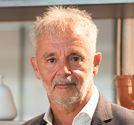Metabolism is the basic system of life, so this module focuses on deepening our understanding of enzyme function and how we can manipulate it. We will explore catalysts and the factors that limit their efficiency, considering both the influence of chemistry, such as pH and cofactors, as well as physics, temperature, light and magnetic fields, on their functionality.
Energy distribution drives evolution and this process is facilitated by enzymes. In this module we will explore the vital importance of enzyme activity and how we can positively enhance it through exercise, diet and behavioural changes. B vitamins are essential for the development of life and act as cofactors for 31% of our enzymes. They are essential for energy production, metabolism and therefore the maintenance of life itself.
Neural and hormonal links are explored, highlighting the enormous influence of hormones on our behaviour, brain, immune system and flexibility. Hormones tell the story of a person’s life, reflecting the maturation of different biological systems and the biological adaptation to circadian and ultradian cycles. As such, they represent the rhythm of our health. In this module we will explore the types of hormones and the communication systems through the different types of receptors.
Learning objectives
Student will:
- Understand how enzymes and hormones work.
- Understand how exercise, diet and behavioural changes can influence enzyme function.
- Know that: Everything is connected through neural and humoral pathways.






